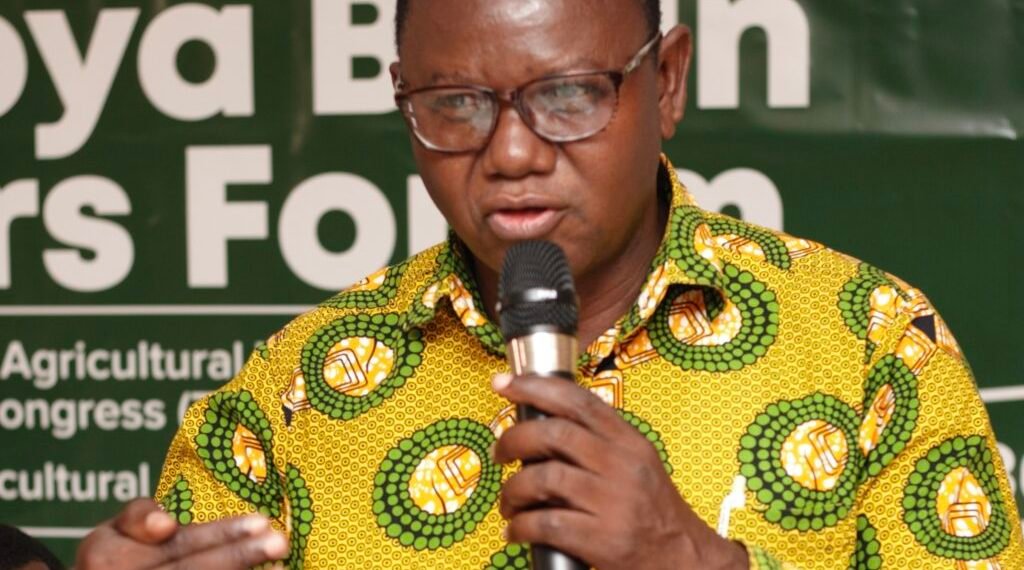General Secretary of the General Agricultural Workers Union (GAWU), Edward Kareweh, has revealed that there’s looming food shortage in the country.
According to him, since 2017, the farmer population in the country has been increasing yet “we are having challenges with food”.
His comments follow the National Food Buffer Company’s statement that it is committed to ensuring food security in the country.
“Now, the farmer population has also been increasing every year with a view to increasing food production. The logic is that when you increase the number of farmers to the subsidized fertiliser and subsidized seed, it also follows that food production will go up. It is not logical that way, otherwise, we wouldn’t have been where we are today.
“Food is very critical and where there is no food, there’s no peace of mind and it can lead to national security crisis. You’ve seen what has happened to other countries where there’s no food. In our case we don’t have to wait until it gets there. But given developments, we are moving towards a serious crisis of food shortage in this country”.
Edward Kareweh
Shortage of fertiliser in the country
Commenting on the impact of fertiliser shortage on food shortage in the country, Mr Kareweh explained that our soil are “now used to fertiliser”. As a result, its shortage has caused a decline in food production in the country.
He further noted that per the state policy, chemical fertiliser has been introduced increasingly to our farmers.
Also touching on the true state of fertiliser stock in the country, Mr Kareweh admitted that currently there’s no fertiliser in the country.
Additionally, he explained that the issues of fertiliser shortage transcends payment of outstanding debt as the government is suggesting.
“Well there’s no fertiliser on the market particularly subsidized fertiliser. We have been told that the bill that was there, government has paid it. But it doesn’t just look like that.
Edward Kareweh
He further explained that even if there was fertiliser it “will now have to be conveyed from Tema, Accra to the hinterland [or] wherever the fertiliser is needed”.
“I have also heard the CEO of the buffer stock saying that fertilisers have been delivered”.
Mr Kareweh further indicated that even if government defrays its outstanding debt, it will take time “for the fertiliser to get to the farmers”.
“I’ll tell you that it’s [been] more than a month since we had the fertiliser crisis. If today fertiliser even gets to the farmer, you have to choose between broadcasting the fertiliser or not. When the time is past and you broadcast the fertiliser you will not get the yield that you’re expecting”.
Edward Kareweh
Resolving food challenges
Reacting to the Agric minister’s decision not to comment on food security until September, Mr Kareweh insisted that September will not be apt moment to comment as farmers will be in their harvest season.
“As to whether in September we will have enough food or not is just natural. Anybody who has the least knowledge about agriculture knows that there’s lean season and there’s harvest season. So, when we get to September and it’s the harvest season and prices drop and you want to use that as meaning that we have done well, it’s not the case. Because the essence of policy is to intervene in the normal way of things… After September into the lean season where will the food come from?”
Edward Kareweh
Read Also: Goods Barometer hits record high, signifies trade recovery boom




















